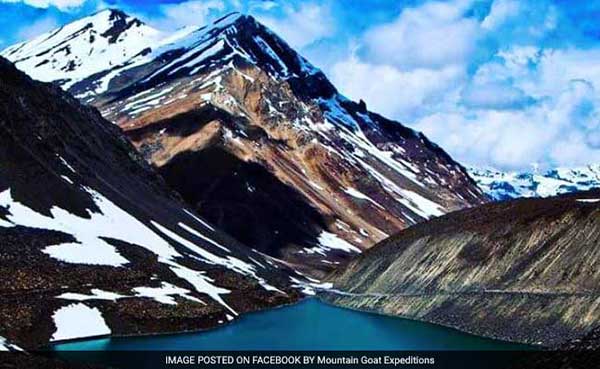

The study, conducted by the State Council for Science, Technology and Environment, says there is accelerated glacial melting in the Chenab, Ravi, Beas and Satluj river basins in the state, resulting in the formation of 109 new lakes between 2013 and 2015.
In the Satluj basin alone, the number of glacial lakes increased by 352 in the two-decade period from 1993 to 2013. However, between 2013 and 2015, unlike other three rivers basins, the Satluj has recorded no new addition of glacial lake formation.
The study said a number of such glacial lake outburst floods have occurred in the Nepal Himalayas. However, no such case has been reported in India so far.
The floods in Uttarakhand in 2013 have been correlated with bursting of a lake.
“Regular monitoring of moraine-dammed lakes will help avert any future natural disasters like glacial lake outburst floods in the Himalayas,” Kunal Satyarthi, Joint Member Secretary of the Council, told IANS.
He said the Council’s Centre on Climate Change has been carrying out studies in the state’s Himalayas since 1993, which includes the monitoring of snow and glaciers, maintaining inventory of the glaciers, seasonal snow cover mapping and monitoring of all moraine-dammed glacial lakes.
The Parchu lake, which originates from Tibet in China, is also being monitored regularly during ablation period from April to September every year.
The number of lakes in Chenab basin has increased to 192 in 2015 from 116 in 2013 — their number was only 55 in 2001.
In the Beas river basin, there were 67 lakes in 2013, while in 2015 they have increased to 89. Similarly, the Ravi basin saw an increase of 12 lakes during this period.
In the Satluj basin, out of 390 lakes, 42 lakes are spread over 10 hectares each. This basin has the maximum number of large lakes compared to the three other river basins.
“The lakes with area more than 10 hectares and area between 5-10 hectares can be seen as potential vulnerable sites,” Mr Satyarthi said.
- IANS














































































